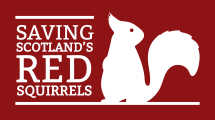…We have several vacancies with closing dates in April, apply via the Scottish Wildlife Trust here. Whilst we are delighted to have had over £1.1m pledged to the project so far, we are still urgently in need of a final £49,000 to fulfil our aims. You can help us by donating to the Scottish Wildlife Trust appeal today. DONATE … […]
Read More…
…its aims and how new volunteers can become involved. In this time, we have also appeared in the local newspaper: Gateway (circulation 66,000) around the Wigtown and Newton Stewart area. On the monitoring side of our group; a trusty band of volunteers (including myself) have been out taking hair samples from feeder boxes to ascertain the numbers of Reds and… […]
Read More…
…the opportunity to get to know their local patch of nature. However, clearly many people have caught the squirrel-spotting bug as we have still received more than 13,000 sightings to our website so far this year. Thank you to everyone who took the time to participate in our citizen science campaign, and to all the organisations, community groups and volunteers… […]
Read More…
…allow others to inflict, cruelty or abuse on a grey squirrel held captive. The Wildlife & Countryside Act 1981 (as amended) makes it illegal to release, or allow to escape to the wild, any captive grey squirrel. The (Prohibition of Importation and Keeping) Order 1937 makes it an offence to keep a grey squirrel in captivity except under licence. The… […]
Read More…
A non-native species is a species that has been introduced to an area where it doesn’t naturally occur. Most of these are harmless but some threaten native species. These are called invasive non-native species (INNS). INNS have been identified as one of the top causes of global biodiversity loss. In Scotland, one of the most prominent INNS is the grey… […]
Read More…
…us a good indication of whether that tetrad contains red squirrels, grey squirrels, both species, or no squirrels. Of course, in one year a feeder box may not be visited by every species in the area, but when compared over the course of many years, this landscape-scale approach to monitoring can provide a strong indication of how both species are… […]
Read More…
…There are now approximately 160,000 native red squirrels in Britain, of which over 75% live in Scotland Since the introduction of grey squirrels, they have become widespread across Britain due to their ability to adapt to new environments. They have also introduced the squirrel pox virus which, although catastrophic to red squirrels, appears to leave grey squirrels relatively unharmed due… […]
Read More…
…through the Community Hub Grey Squirrel Control Group documents, or by contacting your local Community Engagement Officer or Conservation Officer. We ask those continuing with voluntary control work to keep abreast of any further changes in the Scottish Government’s coronavirus advice and please ensure compliance with coronavirus restrictions in your local authority area by visiting https://www.gov.scot/coronavirus-covid-19/. Survey volunteers All… […]
Read More…
…potentially, work with children. Get out and make one, yourselves, the next time that there’s a big dump of snow! Please post any pictures of your snow squirrels (or their woodland friends) on our Facebook page, after you “like” it: https://www.facebook.com/SavingScotlandsRedSquirrels While you’re out there, keep an eye out for either squirrel species and record them here on our website…. […]
Read More…
…fatal within two weeks. Image © William Lee Protecting the Central Lowlands In the Central Lowlands of Scotland, the models predicted that: Without control efforts, squirrelpox can spread rapidly through high density grey populations. Squirrelpox outbreaks in red squirrels cause population crashes, making red populations more vulnerable to replacement and extinction. Outbreaks in red squirrel populations only occur in… […]
Read More…
